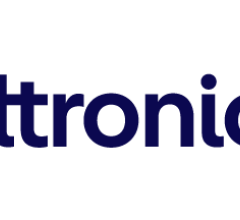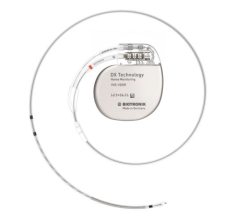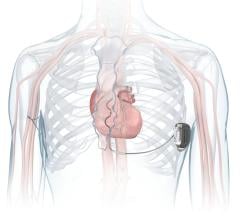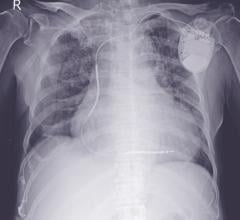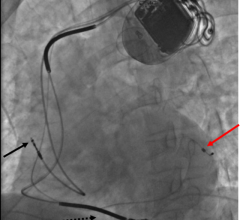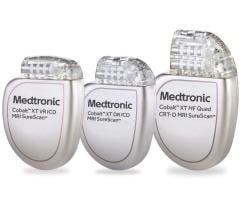November 9, 2012 — More than 350,000 deaths occur each year as a result of sudden cardiac arrest (SCA), which occurs when the heart abruptly and unexpectedly stops beating. A survey issued by the Heart Rhythm Society (HRS) shows a lack of awareness of SCA and the treatment options. In fact, 75 percent of Americans are unaware that an implantable cardioverter defibrillator (ICD) is an effective treatment option to protect those at risk of SCA. In October, HRS highlights SCA Awareness Month with its annual "Apples and Oranges" campaign to raise awareness for SCA and help educate the general public about risk factors and life-saving therapies.
SCA claims one life every 90 seconds, taking more lives each year than breast cancer, lung cancer and AIDS combined. Yet, more than 65 percent of Americans not only underestimate the seriousness of SCA, but also mistakenly believe SCA is a type of heart attack. The most common cause of SCA is a heart rhythm disorder (arrhythmia) called ventricular fibrillation (VF). VF is an "electrical problem" in the heart that can lead to SCA, and without immediate emergency help such as cardiopulmonary resuscitation (CPR) or the activation of a life-saving device, death can follow within minutes of a VF episode.
"The Heart Rhythm Society is working to educate the public and help raise awareness for those who may be at the greatest risk of SCA in order to help decrease the number of lives claimed each year," said Anne M. Gillis, M.D., FHRS, president of the Heart Rhythm Society. "It is important for everyone to know that there are life-saving devices and highly-trained heart rhythm specialists to help people assess their risk and determine appropriate therapies."
People who have experienced SCA or who are at the greatest risk of SCA have a host of treatment options available to restore the heart's normal rhythm and protect against occurrence.
- Automated external defibrillators (AEDs): Defibrillation may be administered with an emergency device called an external defibrillator, which delivers a brief, high-energy shock through paddles or electrode patches applied to the patient's chest. AEDs are increasingly available at public locations, such as airports, gyms and office buildings and can be used to "shock" the heart back into rhythm.
- Medications: "Anti-arrhythmics" can also be used to treat heart rhythm disorders in addition to catheter ablation, a technique in which radiofrequency energy is used to destroy small areas in the heart that give rise to abnormal electrical signals that may contribute to rhythm disorders.
- Implantable Cardioverter Defibrillators (ICDs): For those patients who are at particularly high risk, ICDs may be the most successful therapy to prevent SCA.
ICDs are small pacemaker-like devices, about the size of a business card, that are placed below the collarbone. Via wires, or leads, these devices continuously monitor the heart's rhythm. If a dangerous heart rhythm is detected, the device will deliver a life-saving shock. For those who are at high risk of arrhythmias, the devices or internal "shocking" device may provide the best defense against SCA. Studies of ICDs show they are 99 percent effective in detecting and stopping deadly heart rhythm disorders. In clinical trials, ICDs have been shown to be the most successful therapy to prevent sudden cardiac death in certain groups of high-risk patients.
"Along with knowing the various treatment options for SCA, it is also important to know the common risk factors associated with occurrence," continues Gillis. "By being more informed, patients will feel empowered to have smart conversations with their doctor and, ultimately, improve overall patient care."
SCA often occurs in people who appear healthy, which can make it difficult to know who is at risk. SCA can happen to people of all ages and health conditions. Learning the risk factors is important.
- High blood pressure, diabetes, high cholesterol, being overweight, smoking, poor diet (same as heart disease factors)
- Clogged arteries (coronary artery disease) or previous heart attack
- An abnormal heart rate or rhythm of unknown cause
- An unusually rapid heart rate that comes and goes, even when the person is at rest
- Fainting for no known reason
- A low ejection fraction (a measure of how much blood pumps with each heartbeat)
For more information: www.hrsonline.org


 January 13, 2026
January 13, 2026 

